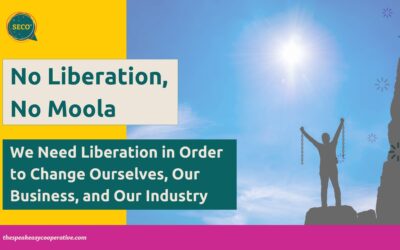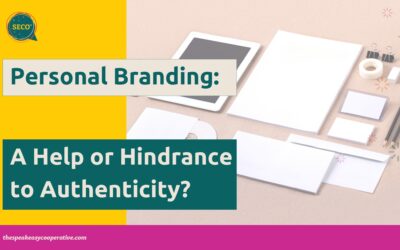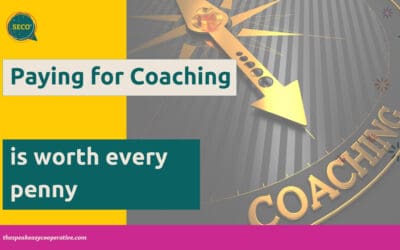Intentional or not – we executing our work in a transactional way or a relational way. Both have benefits, both have discomforts. One thing to be sure, though, is that your business model tells people how to treat you, and if your model is set up for transactions over transformations? Well, that may be why the most emotionally intelligent of us have trouble setting and keeping our boundaries.
It’s difficult to have a relational conversation when we’ve set up a transactional relationship. At one level, every sale is a transaction. Some business models would be wise to be more transactional – perhaps product based? And others would be wise to be more transformational – perhaps service based?
Here are some ideas that go with transactional work:
– I do, you get.
– We are tit-for-tat
– Perception of fair value
– Equality of giver and getter
Here are some ideas that go with relational work:
– We do together
– We ebb and flow… sometimes I am giving more, sometimes you are
– Justice over Fairness
– There are times when the work flow is unequal
These ideas will inform how we arrange our client onboard process and policies, and how we relate to clients when we are in an ongoing relationship with them.
Transactional teaching tends to require many policies because we are concerned with an equal value of “payment and service”, so we have to spell those things out. And we should! It is an important part of staying clear for both parties. Still, we risk adding what I like to call “hairdryer policies”. Hairdryer policies are those policies that are there merely deal with that one time someone did something dumb. I.e, do not use this hairdryer in the bathtub. Someone did that. They had to make a policy.
Relational teaching requires a commitment to the journey and the goal, seeing needs of wants, and therefore requires less policy (not none.) We spell out that as the teacher who has been chosen to take the client on the journey, that just like a nice climb up a mountain, there will be times when one or the other of us has to rest, or refuel, or stop due to a sprained ankle. That “detour” doesn’t change our goal, or the location of the peak. It merely informs the journey. We invite discussion, and outline the most important aspects that need clarity, such as pricing, payment terms, refunds, and communication, but leave details to conversation and questions.
Benefits:
Transactional:
– Clear policies and expectations
– Control is given to the service provider
– No emotional investment is required, therefore can be less tiring for some
Relational:
– The policies can be simple and fluid
– The provider’s health and continuing ed becomes a value to the client
– Time spent becomes less important when the information and exchange of ideas is happening in a way that keeps the client growing.
Discomforts:
Transactional:
– Need to be sure everything is always equal or fair, which can bring anxiety when needing to take time for ourselve
– Still focused on “checking boxes” of the session, rather than long term outcome
– Requires the provider to be visibly effective week to week/session to session
Relational:
– Requires a deeper emotional commitment to the client
– Focuses on a large goal or outcome which can get messy and elusive
– Requires the client to “give” as much as the provider
Again, neither is inherently right or wrong. I offer that thinking through what kind of mindset you have as a person helps to make the decision of which is right for you. Then, the policies fall into place. When you understand that your business model tells people how to treat you, you make strategic decisions about how you market, invite clients into the sales process, write your policies and communicate with clients.
Consider this:
If the first thing a potential client asks for is your pricing, this is an indication that they are viewing your work as transactional. Of course they are! Many music studios have fallen victim to the “a policy for every problem” way of doing things over “hard conversations sometimes must happen” way of doing things.
Your power is in your choice to allow that cycle to continue with you, or to invite all potential new clients into a space where you release them from transaction and set the steady on a course of transformation.
If you hand over your pricing right away, what are you communicating?
If you explain that before pricing is discussed, you must ensure a good fit with the client, what are you communicating?
If you post your policies on your website, and they are 17 pages long, outlining every potential problem that could occur, what are you communicating?
If you hand over your five-page policies in the second or third session and allow time to go in detail over the document together, what are you communicating?
If you are high volume, low cost, what does this communicate?
If you low volume, high cost, what does this communicate?
Again, neither is right or wrong. Being aware of the environment we’ve created is the goal here.
So that, ultimately, when a hard conversation needs to happen, you’re clear on how you’ve worked to frame accurately how client views the relationship.
Your business model tells people how to treat you, and I’d like to see more business owners communicating that they will be treated well – just as they are treating people well.
All My BeastyBoss,

P.S. I enjoyed this little post when thinking of transformational relationships for managers and multi-teacher studio owners. When we have a team, we are required to create a powerful relationship with both our team AND our client!
P.P.S. As I write this, I am listening to SECO member Georgia Gray teach on Authenticity in French Diction and now I am daydreaming of becoming a French cabaret singer. Did you know we do this kind of continuing ed in SECO, in addition to business mojo? It’s wonderful! Check us out, here.






Wow Michelle! Once again you really put words to something I’ve been thinking about and feeling for a long time. <3 Relational vs. transactional can be such a hard balance and it's nice to break it down with cost and benefits of each